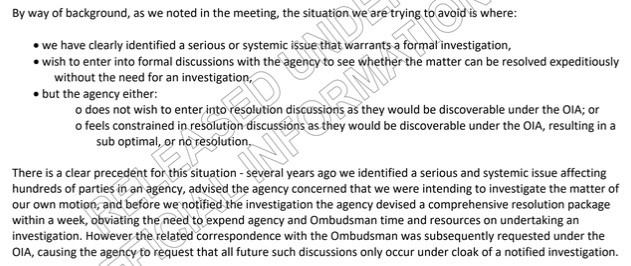Last year it became clear that the government's ETS price control policy was a mistake, resulting in huge public costs for tiny, tiny benefits. The problem was clear well in advance, and while it couldn't be avoided in 2021 without urgent legislation, James Shaw could have used the opportunity of a required annual change in regulations to stop it from happening in 2022. But he didn't. Why not? Ministry for the Environment has just "proactively" released the regulatory impact statement on the 2021 Updates to NZ ETS unit limit and price control settings regulations, and while its heavily redacted, the answer seems to boil down to them just not wanting to think about it.
Firstly, the part of the RIS on "CCR initial trigger price level" starts out by effectively admitting that they got it wrong. They had apparently been assuming that carbon prices would just trickle on somewhere around $25 - $30 / ton, as if they'd never made any changes to the ETS. Instead,
NZU price movement since 2020 has been significant and somewhat unexpected. The risk of the CCR being activated at a $50 price trigger in 2021 was considered low at the time it was set. There is now a material likelihood of the CCR being triggered in 2021 and 2022, given recent NZU price trajectory (see figure 2).
This was woefully optimistic: when they said it, carbon was right on the edge of the $50/ton trigger price, and exceeded it within a couple of weeks. The market trend was obvious to all, and competent advice would have examined a broad range of higher trigger points in response, or even questioned the advisability of trying to control prices in this way in the first place. Instead, MfE stuck to its "low carbon prices" policy and recommended three options: $50, $60, and the Climate Commission's recommendation of $70 (which is what they settled on). Why didn't they go higher?
Options above the Commission’s recommendation are also not considered. A $100 trigger price option was assessed in 2020 and not recommended. They would risk very high auction clearing prices, which are well-above the abatement costs the Commission has forecast to meet their recommendations for the first emissions budget.[REDACTION] it could impose significant and unnecessary costs on businesses and households at this time. Options above the Commission’s recommendation would not effectively achieve cost containment in the NZ ETS.
...which is basicly
what they said about a $70/ton trigger point last year. They do note that "[t]he acceptability of an emissions price around $70 has changed since the CCR trigger price was set last year", but they don't seem to consider that this has also changed the acceptability of
higher prices as well. But as they note, this is all about "cost containment", keeping carbon prices low. And when the ETS works by making carbon prices high, they're basicly undermining their own policy. Its the same mistake they've made all along: trying to have a carbon price to lower emissions, while simultaneously trying to keep it as low as possible to avoid lowering emissions. And as ought to be clear by now, that policy is both immoral and untenable.
Incidentally, much of this briefing, including figures on expected outcomes, is redacted. Unusually, no reason is given for the redactions, meaning that their lawfulness cannot be assumed and that they may simply have been made to avoid embarassment over a very public and expensive mistake which is about to be repeated. But that's the problem with proactive release: with no legal framework and no oversight, its basicly the government telling us what it wants us to hear, at a time convenient for them. Which isn't exactly democratic.







